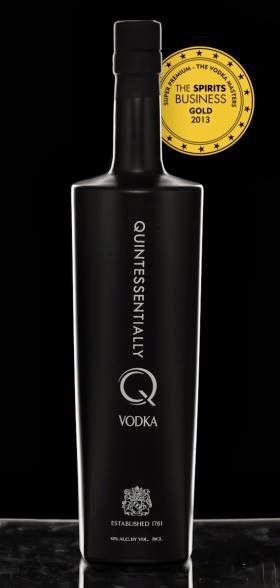UK Shoppers Are Losing Awareness And Understanding Of Organic
As the
organic movement seeks to raise awareness of food produced using
environmentally and animal friendly farming methods this September (Organic
September: www.soilassociation.org/smallchangesbigdifference), a new survey of
food symbols and endorsements found on many products in supermarkets and other
retailers reveals a less than healthy situation for organic.
The survey
asked consumers to indicate if they recognised a list of 13 symbols found on
food products. It then asked which symbols were 'actively looked for' when out
shopping. Results were compared with a previous poll in 2008.
The Soil Association
symbol – belonging to the leading charity behind the organic movement in the UK
– has seen recognition levels soften from 40 per cent observed in December
2008, to 33 per cent in the latest poll.
As a point of reference, the Rainforest Alliance commanded 47 per cent
claimed recognition, the Fairtrade symbol 89 per cent, the Lion Quality mark,
as found on eggs, achieved 76 per cent and the Recycling symbol 72 per cent.
The fastest riser, jumping 13 per cent in recognition, was the Red Tractor brand
with 65 per cent.
While 36 per
cent of shoppers look for Fairtrade, 31 per cent look for Red Tractor and 28
per cent look for Lion Quality-marked products, only 10 per cent of the sample
claimed to seek out the Soil Association symbol when shopping.
More
important still is that only 29 per cent of people believe they could
confidently relay what organic means to a friend, although a further 47 per
cent indicated that they could relay something, albeit with less confidence.
According to
food and drink research specialists, MMR Research Worldwide (MMR), who
conducted the survey of 285 UK shoppers aged between 16 and 74 in July,
lowering awareness and shopper confusion surrounding organic can be remedied
with simpler messaging.
“Our figures
show that the Soil Association has taken a bit of a knock in recent years,
particularly among younger people” says Andy Wardlaw, Insight Director at MMR
Research Worldwide. “It may come as a surprise not only that organic is in the
bottom half of food symbols recognised by 16 to 34 year olds but that it
performs so poorly compared to the Rainforest Alliance and Fairtrade symbols.
“Further
probing in our research indicated that simple information about organic could
have a positive impact on the way consumers feel about organic produce. We suspect that people think they know what
it means but when it comes to the crunch, there is very little to draw on.
Nearly three quarters of people said they would feel more positive with messaging
linked to “no harmful pesticides”, “works with nature”, “animals reared
humanly” or “no artificial fertilisers”.
“It would
appear from this research that there are issues that consumers care about, that
are not currently associated with the organic movement. This represents an opportunity to increase
the relevance of organic foods and fill the void of consumer understanding. The
Soil Association and brand owners alike could consider initiatives to reinforce
consumer trust regarding the supply chain and quality. We recommend exploring
the different facets of organic status and how they fit a particular brand's
positioning and strategy.”
Symbols that
UK consumers claim to have seen
Fairtrade
89%
Lion Quality
76%
Recycle
72%
Red Tractor
65%
Rainforest
Alliance
47%
Soil
Association
33%
Freedom Food
29%
Vegetarian
Society
21%
Carbon Trust
17%
Vegan Society
15%
Marine
Stewardship
14%
Celiac
Society
7%
LEAF
4%
I have not
heard of any of these food labels
2%
About MMR
Research Worldwide
MMR Research
Worldwide (MMR) is a leading research partner for food, drink, and household
and personal care companies with offices in the UK, USA, Singapore and China.
With profound expertise in sensory research, product testing, packaging
innovation, NPD and emotion-based research, MMR provides innovative, creative
and scientifically-robust research and is a trusted advisor on all product,
brand and packaging strategy decisions. MMR's clients have access to a variety
of unique proprietary research assets including Brandphonics® – an approach to
identify what influences consumer choice – and in-house sensory facilities. MMR
is part of the MMR Group which is a privately-owned research company employing
approximately 200 people. Founded in 1989 by Professor David Thomson, the Group
is headquartered in Oxfordshire, UK. www.mmr-research.com.




Comments
Post a Comment